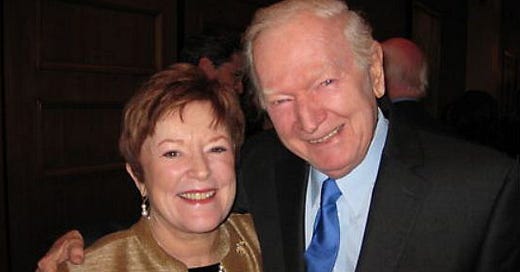MET Chairman Still Believes He Didn't Have to Report Wife's Income
This article was first posted February 8, 2012
By John Earl
Surf City Voice
The chairman of the Metropolitan Water District of Southern California (MET), John V. Foley, says that a recent Surf City Voice story that exposed the omission of his wife’s income from years of financial disclosure statements he filed with the water agency did him an “injustice by just making your own interpretation, which, quite frankly, is totally different than what mine is.”
The story pointed out that Foley had not reported an estimated $248,000 of income that his wife, Mary Jane Foley, was paid by various southern California water agencies for consulting work going back to 2004.
State law requires government officials to publicly disclose their relevant economic interests, including spousal income, within 30 days of assuming office and annually thereafter. Fines of up to $5,000 can be levied by the Fair Political Practices Commission for violations.
Foley has served on the MET as the appointed representative of the Municipal Water District of Orange County since 1989. He was chosen by the MET to be its chairman for a second time in 2011.
In September Foley told the Voice that he was unaware that he had to report his wife’s income. But in October, after advice from MWD legal counsel, he amended is Statements of Economic Interest, which are filed on “700” forms, to include that income.
“The advice was: rather than get in a big battle over this why don’t you go ahead and report it,” Foley said in a phone interview Tuesday. “I decided for the sake of solving this, and not having it look like it has been hidden—put it in there.”
Mary Jane Foley and husband John V. Foley, MET Chairman
Foley says that all of his wife’s consulting income goes into a separate trust fund for her children, that he has no access to it and that there is no “co-mingling” of her income with his. He and his wife have separate bank accounts, he adds, and file separate tax returns – all of which he believes exempt him from the state reporting law.
“To be extra safe, I went ahead and reported,” despite his exemption, he said. “I really to this moment think that I don’t have to report it,” he insisted.
But Foley’s interpretation of the law, however sincere, is conclusively incorrect.
Public officials must report spousal income unless they have a pre or post nuptial agreement, according to Tara Stock, a spokesperson for the Fair Political Practices Commission.
Stock would not comment on Foley’s case, but told the Voice by e-mail that “The general rule is that in order for a spouse’s income to possibly be exempt from reporting, there must be a valid prenuptial or postnuptial agreement and a separate property agreement.”
When asked if he had a prenuptial or postnuptial agreement with his wife Foley responded, “Separate tax returns, separate accounts. Yes.” But when asked again, specifically, if he had any nuptial agreements with his wife, Foley said he did not.
Even if Foley had signed a nuptial agreement with his wife, however, he would not have been required to file it with the FPPC or MET. In fact, according to Stock, the Commission would only seek verification of such an agreement if an official complaint had been filed with her agency.
Foley said that his wife is winding down her consulting work. “In the last two years she’s done very little work and probably will close her business because she does not really want to spend that much time on that stuff anymore. She kind of hates the regulatory field.”




